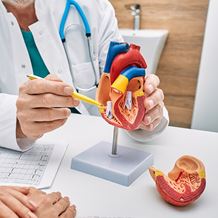What are Blood Tests?
Blood tests are a very important part of a doctor’s toolkit, as they can help diagnose how well the different parts of your body are working. They are one of the most commonly used tests and usually form part of a routine examination or are recommended as a response to symptoms. Your blood has a very important job to perform in terms of transporting oxygen and nutrients around your body, so that everything works efficiently. If any part of this system is out of balance, there are different types of blood tests available that can help determine the cause.
How does it work?
Regular blood tests can help you understand how your body changes over time and will keep track of your overall health. The actual testing procedure is very simple and usually performed by a nurse. Once your veins have been made more visible using a band around your arm, the area is cleaned, and a needle is inserted to withdraw a small amount of blood. The punctured area is covered with a band aid, and you may be asked to press down on the site to help the vein stop bleeding. The collected blood is then sent off for testing. You may be asked to fast for a period of time before certain blood tests.
Why do I need it?
Regular blood tests are one of the most important ways to keep track of your overall wellbeing, and an accurate way to track any changes. They can check for infection, determine how well your organs are working and screen for certain health conditions. If you are experiencing any kinds of symptoms or have suffered an injury or illness, your doctor may recommend a blood test to see how your body has reacted, and to find out more about your health.
What does a Blood Test show?
There are around 10 common blood tests that can help share information about your health and diagnose disease. Common tests check your full blood count (cells and platelets), cholesterol, electrolyte balance, clotting efficiency and liver function. Blood tests can also be used to identify specific enzymes that are markers of certain heart conditions and determine the level of risk. The results of your test can also help determine whether your organs are working efficiently, and whether any prescribed treatment is working effectively. Your doctor will talk to you about the results and whether any further testing is necessary.
What's next?
If you have been experiencing heart-related symptoms, book an appointment with our cardiac services specialist today.
Our specialists in Cardiac Services
View all specialists






